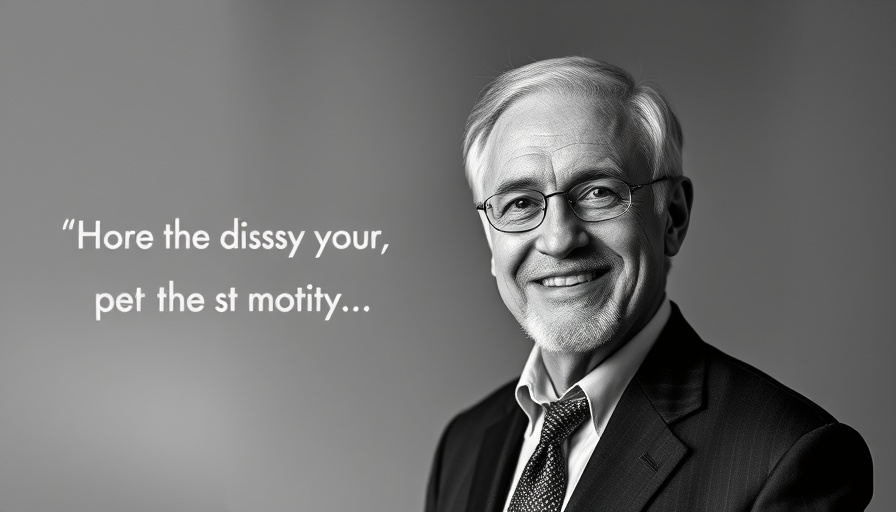
The Legacy of Nobel Prize Winners and Innovation
Each year, the Nobel Memorial Prize in Economic Sciences sheds light on groundbreaking ideas that reshape our understanding of economic forces. This year, the prize was awarded to Joel Mokyr, Philippe Aghion, and Peter Howitt, whose collective work illuminates how innovation is not just a matter of invention—it's a process reliant on history, culture, and established knowledge. Their conclusions about how past milestones influence our current economic landscape provide valuable insights for individuals eager to contribute positively to their communities.
Understanding Creative Destruction
Central to the laureates' research is the idea of 'creative destruction,' which suggests that new technologies must replace old ones for economies to thrive. Mokyr emphasizes the importance of amalgamating propositional knowledge with prescriptive knowledge in driving progress. Without understanding why something works, we risk stagnation. This concept not only applies to historical analyses but also reflects the present era dominated by technological advances and, notably, artificial intelligence (AI).
AI and Its Role in Innovation
As we navigate a rapidly changing environment, the findings from a recent IBM study highlight the current phase of creative destruction. AI is reshaping industries by replacing outdated processes with more efficient solutions. Business leaders are finding themselves in a position where rethinking traditional operational structures has become essential. As Mokyr, Aghion, and Howitt assert, it's essential for us to be aware of the historical lessons in innovation to adapt and thrive in these dynamic times.
Lessons from History: Why Understanding the Past is Key
Historically, major economic shifts, such as the Industrial Revolution, demonstrate that progress is rarely instantaneous. They emerge from a confluence of previous discoveries and societal readiness to embrace change. For entrepreneurs and innovators today, looking back at past innovations—what worked, what risks were present, and what could be improved—can illuminate paths toward new breakthroughs. Entrepreneurship often begins with observing historical successes and failures to forge new opportunities.
The Need for Sustainable Growth
The laureates of this year's Nobel Prize remind us that maintaining economic growth requires vigilance against stagnation. Factors such as protecting open market practices and embracing sustainability play pivotal roles. Aghion and Howitt warn that barriers to entry can stifle the natural process of economic evolution, ultimately hindering creativity and progress. As we harness AI and other technologies, we must do so with a focus on ecological stewardship—ensuring that the solutions we pursue today do not compromise the prosperity we seek tomorrow.
Finding Balance in Innovation
The winners' reflections underscore that while innovation may drive progress, challenges arise in managing its impact on society. We have observed this dynamic throughout history—the backlash against innovation often comes from those who feel their livelihoods are at risk. Today, as technology accelerates, it is critical to equip individuals and institutions to adapt to these changes. Continuous learning and flexibility in resource allocation are essential to prepare society for what comes next.
Conclusion: Building for Tomorrow
Ultimately, the discourse surrounding the Nobel Prize winners encourages a collective understanding of our past as a potent tool for constructing our future. By learning from past innovations as well as the challenges they generated, we can strive for a harmonious balance between technological advancement and community resilience. Those aspiring to foster change in their communities must stay curious, adaptable, and open to learning—hallmarks of the spirit of innovation highlighted by this year’s laureates.
As we look ahead, remember that the key takeaway from the insights of Mokyr, Aghion, and Howitt is not to fear change but to embrace it as an opportunity to grow. With innovation as our guiding force, let us remain committed to progress through a lens of understanding and wisdom.
 Add Row
Add Row  Add
Add 




Write A Comment